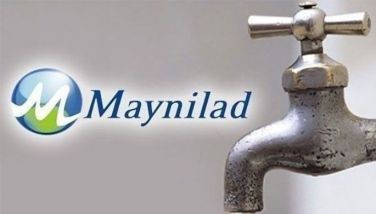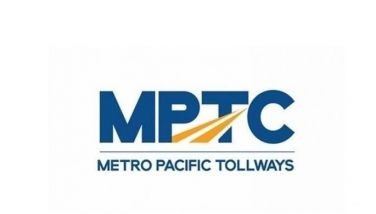Malaysians, banks iron out kinks in proposed NSC rehab

October 7, 2002 | 12:00am
Malaysia’s debt restructuring firm Pengurusan Danaharta Nasional Berhad and the creditor banks of the National Steel Corp. (NSC) are again trying to iron out another kink in their talks over the rehabilitation of the mothballed steel firm.
Trade and Industry Secretary Manuel Roxas II said over the weekend that Danaharta is asking for a lockout period of between three to five years before any assets of the NSC can be disposed.
Roxas said Danaharta wants assurance from the banks that they would try to make a go at rehabilitating the NSC and not simply dispose of NSC’s assets once they takeover.
Danaharta and the consortium of creditor banks has basically agreed to a restructuring of NSC’s P18-billion debt with all parties agreeing to a substantial "haircut" or debt write off.
The banks would gain majority control of NSC, while the Malaysian shareholders would agree to become a minority partner.
There was also an agreement to create a special purpose vehicle of SPAV to house the assets of NSC.
However, Danaharta had wanted veto power over any major "corporate life-changing decisions" such as a sale of core assets.
The banks, Roxas said, agreed with Danaharta’s request but wanted a definite time period for such veto power.
Both parties are now negotiating on a three to five year lockout period.
At the same time, there is also provision that if there is a decision to sell core assets during the lockout period, there must be a "super-majority" vote.
This means that there must be at least an 85 percent majority decision to sell assets. After the lockout period, Danaharta is also trying to secure a right-to-counter-offer to buy any assets to be sold.
Danaharta is likewise insisting that any sale of assets after the lockout period should be valued no less than 80 percent of appraised value.
If the NSC assets are to be sold below that level, Danaharta wants to have the right to counter-offer.
However, if the assets are sold above 80 percent of the appraised value, Roxas said, Danaharta would not insist on the right to counter-offer.
Danaharta, Roxas said, merely wants to make sure that there would be no fire-sale of assets.
Danaharta’s request, Roxas optimistically assures, "is not going to be a deal breaker."
However, Roxas could still not say when a final agreement would be signed between Danaharta and the consortium of creditor banks.
Roxas was confident though that the process continues to move forward from the impasse that the Malaysians and creditor banks were at a couple of years back.
The creditor banks had initially just wanted to foreclose on NSC and sell off its assets. The Malaysians for their part was ready for a long-drawn out legal battle to protect their majority 80 percent interest in the steel firm.
The Department of Trade and Industry, however, has been mediating the dispute and has been successful in getting both parties to sit down and come to some agreement to rehabilitate and reopen the mothballed steel firm.
Trade and Industry Secretary Manuel Roxas II said over the weekend that Danaharta is asking for a lockout period of between three to five years before any assets of the NSC can be disposed.
Roxas said Danaharta wants assurance from the banks that they would try to make a go at rehabilitating the NSC and not simply dispose of NSC’s assets once they takeover.
Danaharta and the consortium of creditor banks has basically agreed to a restructuring of NSC’s P18-billion debt with all parties agreeing to a substantial "haircut" or debt write off.
The banks would gain majority control of NSC, while the Malaysian shareholders would agree to become a minority partner.
There was also an agreement to create a special purpose vehicle of SPAV to house the assets of NSC.
However, Danaharta had wanted veto power over any major "corporate life-changing decisions" such as a sale of core assets.
The banks, Roxas said, agreed with Danaharta’s request but wanted a definite time period for such veto power.
Both parties are now negotiating on a three to five year lockout period.
At the same time, there is also provision that if there is a decision to sell core assets during the lockout period, there must be a "super-majority" vote.
This means that there must be at least an 85 percent majority decision to sell assets. After the lockout period, Danaharta is also trying to secure a right-to-counter-offer to buy any assets to be sold.
Danaharta is likewise insisting that any sale of assets after the lockout period should be valued no less than 80 percent of appraised value.
If the NSC assets are to be sold below that level, Danaharta wants to have the right to counter-offer.
However, if the assets are sold above 80 percent of the appraised value, Roxas said, Danaharta would not insist on the right to counter-offer.
Danaharta, Roxas said, merely wants to make sure that there would be no fire-sale of assets.
Danaharta’s request, Roxas optimistically assures, "is not going to be a deal breaker."
However, Roxas could still not say when a final agreement would be signed between Danaharta and the consortium of creditor banks.
Roxas was confident though that the process continues to move forward from the impasse that the Malaysians and creditor banks were at a couple of years back.
The creditor banks had initially just wanted to foreclose on NSC and sell off its assets. The Malaysians for their part was ready for a long-drawn out legal battle to protect their majority 80 percent interest in the steel firm.
The Department of Trade and Industry, however, has been mediating the dispute and has been successful in getting both parties to sit down and come to some agreement to rehabilitate and reopen the mothballed steel firm.
BrandSpace Articles
<
>
- Latest
- Trending
Trending
Latest
Trending
Latest
Recommended































